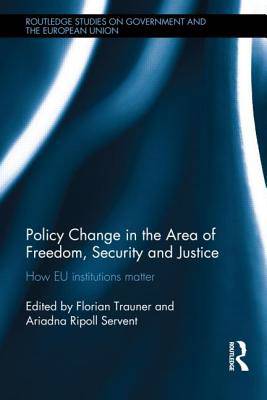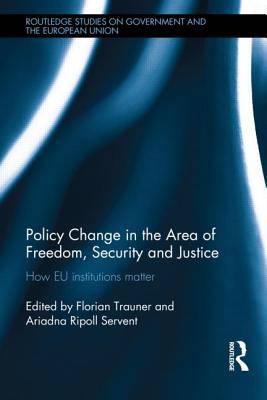
- Retrait gratuit dans votre magasin Club
- 7.000.000 titres dans notre catalogue
- Payer en toute sécurité
- Toujours un magasin près de chez vous
- Retrait gratuit dans votre magasin Club
- 7.000.0000 titres dans notre catalogue
- Payer en toute sécurité
- Toujours un magasin près de chez vous
Policy Change in the Area of Freedom, Security and Justice
How EU Institutions Matter
Description
The EU plays an increasingly important role in issues such as the fight against organised crime and the management of migration flows, transforming the Area of Freedom, Security and Justice (AFSJ) into a priority of the EU's political and legislative agenda.
This book investigates whether institutional change - the gradual communitarisation of the AFSJ - has triggered policy change, and in doing so, explores the nature and direction of this policy change. By analysing the role of the EU's institutions in a systematic, theory-informed and comparative way, it provides rich insights into the dynamics of EU decision-making in areas involving high stakes for human rights and civil liberties. Each chapter contains three sections examining:
- the degree of policy change in the different AFSJ fields, ranging from immigration and counter-terrorism to data protection
- the role of EU institutions in this process of change
- a case study determining the mechanisms of change.
The book will be of interest to practitioners, students and scholars of European politics and law, EU policy-making, security and migration studies, as well as institutional change.
Spécifications
Parties prenantes
- Editeur:
Contenu
- Nombre de pages :
- 264
- Langue:
- Anglais
- Collection :
Caractéristiques
- EAN:
- 9781138787506
- Date de parution :
- 21-11-14
- Format:
- Livre relié
- Format numérique:
- Genaaid
- Dimensions :
- 177 mm x 233 mm
- Poids :
- 517 g

Les avis
Nous publions uniquement les avis qui respectent les conditions requises. Consultez nos conditions pour les avis.





